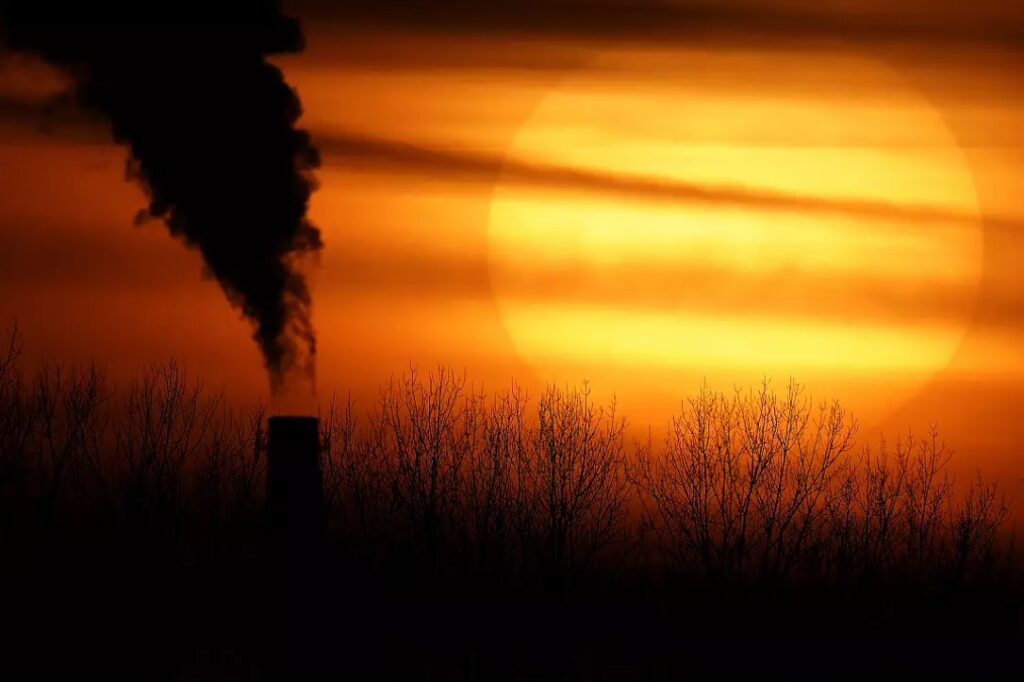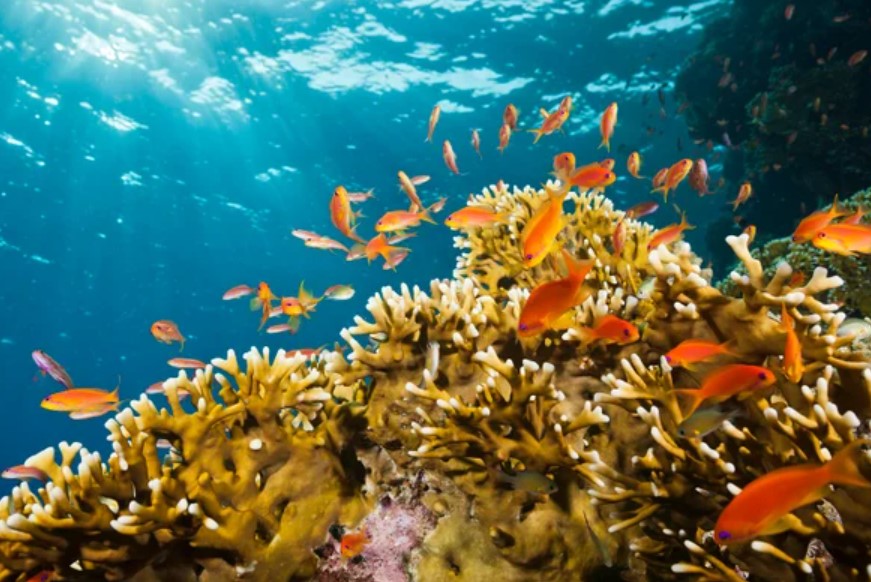The United Nations warned in a report that climate warming could reach 2.6 degrees Celsius, by the end of the century, given current pledges to combat greenhouse gas emissions, an outcome that United Nations Secretary-General Antonio Guterres considered “pathetically below the required level.”
NCEJ
UN Secretary-General Guterres has called for an end to “greenwashing” and any misinformation about alleged commitments to protect the environment. However, countries do not abide by their commitments, and the current path leads to a global warming of 2.8 degrees Celsius, according to the report of the United Nations Environment Program.
The report referred to the call made by COP26, which was held in Glasgow, for the signatories to the Paris Agreement to strengthen their commitments, and thus the success of plans to reduce emissions, which are known as “nationally determined contributions, but because of their failure to comply with these commitments, the land will be the main victim in terms of rise The temperature, which will reflect negatively on the climatic and environmental biodiversity on the planet, but until this time, only 24 countries have provided what they pledged, which will be strongly put forward at COP27 in Sharm El-Sheikh in Egypt.
Global Catastrophe
This disregard for the commitments has left UN Secretary-General António Guterres impatient, describing in a video message posted to him that the pledges received are “not up to par, rather pathetically few”, and warned, “We are heading for a global catastrophe.” .
According to the report, the contributions in their current state mean that there is a continuation of the global warming process on Earth, and this will pose a 66% risk of an increase in the Earth’s temperature to reach 2.6 degrees Celsius by the end of the century.
Guterres was more direct when he said that commitments to carbon neutrality are worthless without plans, policies and procedures that support them, and added, “Our world no longer has room to do green washing, as a solution or perhaps a way out to justify non-compliance.”

A Lost Year
Another report published by the UN Climate Panel noted that recent international commitments on climate are still “a long way” from meeting the goal of the Paris Agreement.
Anne Olhoff, lead author of the UN Environment report, told AFP that 2022 would be “another lost year (…) but that doesn’t mean that all countries don’t take things seriously. But overall, it’s far from that.” be satisfactory.”
The International Energy Agency predicted in a report that global emissions of energy-related greenhouse gases will peak in 2025, due to the impact on global energy-producing markets of the Russian invasion of Ukraine.
Agency Director Fatih Birol believes that “the end of the golden age of gas” has come because of the gas crisis caused by the Russian invasion of Ukraine, which is pushing Europe to dispense with Russian gas. Taking into account the countries’ recently doubled “carbon neutral” commitments, the increase could even be limited to 1.8°C and come close to the target set by the Paris Agreement. However, “this scenario is currently not convincing,” according to the report, which refers to the “discrepancies” between the promises made and the results obtained.
Marine Ecosystems
According to a report presented by the Journal of Global Change Biology, which is concerned with studies and scientific research, the waters of the Mediterranean Sea have recently witnessed a remarkable rise, threatening marine ecosystems, and resulting in mass deaths of many marine organisms.
Scientists note that waters from Barcelona to Jaffa and the French Riviera to the North African coast are experiencing exceptionally high temperatures ranging between 3°C and 5°C above normal for this time of year.
Water temperatures reached 30 degrees Celsius on some days.

Recently, heat waves, along with record-high temperatures in many countries around the Mediterranean, with their disastrous effects from wildfires and devouring vast areas to drought, have grabbed the attention of the world and scientists.
The report says groups of about 50 species, including corals, sponges and macroalgae, have been affected by warming waters along thousands of kilometers of Mediterranean coasts, from Spain to the Near East.
Scientists consider that this phenomenon may have devastating effects on the countries of the region if it is not dealt with as soon as possible.
Some of the most affected and vulnerable species are those considered essential to maintaining the functionality and biodiversity of key coastal habitats, including seagrass meadows or coral reef assemblies, two of the most emblematic habitats in the Mediterranean.
Although the Mediterranean represents less than 1% of the surface area of the global oceans, it is one of the major reservoirs of marine biodiversity, containing between 4% and 18% of the world’s marine species.
It is on top of the list of seas and oceans that are warming the fastest.
Oceanographers are specifically looking for authorities to ensure that 30 percent of marine areas are protected from human activity, giving marine species a chance to recover and thrive.
Sources






